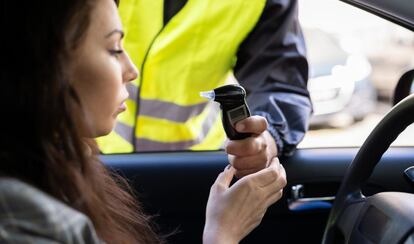Tongue-twisters instead of breathalyzers
Two North American universities developed a method for testing drunk drivers that has achieved 98% accuracy in trials

“Tongue-twisters could be used to gauge alcohol-intoxication levels,” reads the headline from The Guardian. Stanford University and the University of Toronto have developed an algorithm and AI-enabled app that uses tongue-twisters instead of breathalyzers to detect intoxication levels solely based on voice recordings.
Trying to say classic tongue-twisters like “Peter Piper picked a peck of pickled peppers” or “Sally sells sea shells on the seashore” can be quite challenging with a few drinks under your belt. The study found that the tone and frequency of speech can indicate intoxication or the presence of alcohol in the body. The groundbreaking system developed by the two universities gauges the level of difficulty an individual experiences when trying to read a tongue-twister fluently.
The app could be used as a sort of ignition lock in automobiles. “To prevent unauthorized vehicle access, a voice challenge must be successfully completed. This security measure is particularly useful in high-risk occupations like school bus drivers or heavy machinery operators,” said Stanford’s Dr. Brian Suffoletto, one of the study authors.

The Journal of Studies on Alcohol and Drugs published the study in which 18 participants (72% male, ages 21–62 years) read a randomly assigned tongue-twister before drinking, and each hour for up to seven hours after drinking a weight-based dose of alcohol. “This was used as a kind of vocal stress test to identify changes that might not be detected in routine types of speech,” said Suffoletto. The voice analysis predicted alcohol intoxication with 98% accuracy, with intoxication being defined as a breath alcohol concentration equal to more than 0.08%, the legal blood alcohol limit for driving in the United States.
Although the study sample was limited in terms of number of participants, gender and age, the researchers said the tests successfully identified alcohol intoxication, and that devices such as mobile phones and smart speakers could be useful for just-in-time interventions. Larger studies using varied voice samples are needed to validate and expand the models.
Sign up for our weekly newsletter to get more English-language news coverage from EL PAÍS USA Edition
Tu suscripción se está usando en otro dispositivo
¿Quieres añadir otro usuario a tu suscripción?
Si continúas leyendo en este dispositivo, no se podrá leer en el otro.
FlechaTu suscripción se está usando en otro dispositivo y solo puedes acceder a EL PAÍS desde un dispositivo a la vez.
Si quieres compartir tu cuenta, cambia tu suscripción a la modalidad Premium, así podrás añadir otro usuario. Cada uno accederá con su propia cuenta de email, lo que os permitirá personalizar vuestra experiencia en EL PAÍS.
¿Tienes una suscripción de empresa? Accede aquí para contratar más cuentas.
En el caso de no saber quién está usando tu cuenta, te recomendamos cambiar tu contraseña aquí.
Si decides continuar compartiendo tu cuenta, este mensaje se mostrará en tu dispositivo y en el de la otra persona que está usando tu cuenta de forma indefinida, afectando a tu experiencia de lectura. Puedes consultar aquí los términos y condiciones de la suscripción digital.








































